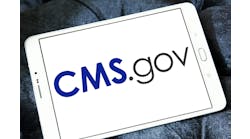‘Medicaid-First’ Equality Health Enters Louisiana Market
Equality Health, a technology-enabled primary care platform that leverages value-based payment models, has expanded into the state of Louisiana with an initial focus on the 17 counties surrounding Baton Rouge and New Orleans-Metairie.
Phoenix-based Equality Health said it will equip participating independent primary care practices with tools, technology and financial support necessary to deliver enhanced services to vulnerable Medicaid members. The company said its care model also augments care enablement with direct, community-based clinical services that extend the reach of primary care practice into the places where the most clinically complex members live and work.
Equality Health's care model is Medicaid-first in design, partnering with over 3,500 primary care providers and 700,000 lives across Arizona, Texas, Tennessee and now Louisiana.
Mark Stephan, M.D., M.B.A., chief medical officer for Equality Health, recently spoke with Healthcare Innovation about the company’s business model. “The way we enter markets is in the Medicaid space, but we also have Medicare Advantage contracts and we're in ACO REACH,” he said. “It’s important to bring a portfolio of value-based agreements to a practice. It helps with mindshare and behavior change and practice transformation when you have a significant part of your panel in a value-based agreement. We're not in commercial at this time, but we may be in the future.”
He said there are elements that make certain states more attractive markets. “There are some commonalities that help us prioritize state markets to enter and a principal one is the state agency appetite for APMs [alternative payment models] and moving along. Because if the expectation isn't set, then it's not always a first priority for an MCO [managed care organization], as you can imagine.”
According to the Louisiana Department of Health, approximately 2 million -- 42 percent -- of Louisiana's residents are currently on Medicaid with a large contingent of women and children covered by the program.
"We're here to help make the transition to value-based care more effective – for both healthcare providers and payers," said Hugh Lytle, Equality Health founder and CEO, in a statement. "Navigating the complexities of alternative payment models can be daunting – especially for those serving historically underserved populations, like Medicaid beneficiaries. By focusing on whole-person care, we can make a dramatic difference in the health of our communities."
Equality Health said it can help primary care providers consolidate multiple value-based contracts from different payers into a single integrated technology platform, simplifying value-based workflows and lightening the administrative burden of outreach, scheduling, pre-visit care planning and supplemental data submissions. Further, Equality Health says it offers financial support for practices that successfully execute on identified value-based workflows.


